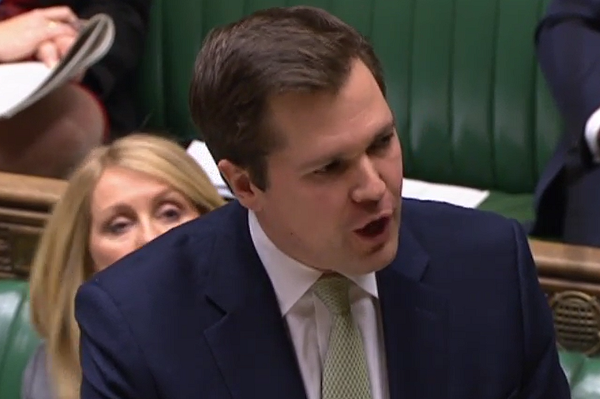Conservative election victory: we take a look at the housing secretary’s post-election in-tray
Following the overwhelming Conservative majority, Inside Housing runs through some of the key items on housing secretary Robert Jenrick’s to-do list as Westminster prepares to get back to business. Photography by Getty
The cladding crisis
Under pressure on the campaign trail, Boris Johnson promised to review the issue of dangerous cladding from “top to bottom”.
This is a very big ask. The government has been dealing with the narrow issue of aluminium composite material cladding on buildings above 18m only so far and has spectacularly failed to meet its target of overseeing the completion of most of the remediation work by the end of this month.
But the question quickly becomes broader: there are 12,000 high-rise buildings around the UK, many of which will have dangerous materials of other kinds.
A further 100,000 medium-rise buildings would also need to be checked if the threshold was lowered to 11m.
This is a major task that will require national leadership, further calls on public money and (in all likelihood) primary legislation to force culpable parties to pay up if it is to be properly addressed. It is also urgent – the next fire won’t wait until politics is ready for it.
While making all these buildings safe may be decades’ work or more, there can be no more delays in checking and providing interim measures.
A new deal for renters and first-time buyers
The government made its commitment to scrap no-fault evictions in April, in what was arguably the high water mark of Theresa May’s shift to the left in terms of housing policy.
As a result, there was some surprise that this policy also made an appearance in Mr Johnson’s manifesto, given his switch back to a more traditional focus on homeownership.
Nonetheless it did, and campaigners will now pile on the pressure for its introduction, which will certainly require primary legislation. Renters have also been promised ‘passport’ deposits to reduce the cost of moving.
A cautionary tale: the promise to scrap letting agency fees was made in November 2016 and was not implemented until spring this year. The current secretary will hope for a quicker journey.
First-time buyers will also be waiting expectantly outside Marsham Street for the forever fixed-term mortgages they were promised (which will require some delicate negotiation with lenders), as well as the 30% deposit for ‘First Homes’. Another note of caution: these bear a distinct resemblance to the ill-fated Starter Homes promised in 2015.
Ending rough sleeping
The Conservatives’ manifesto pledged to end “the blight” of rough sleeping by 2025.
Matt Downie, director of policy and external affairs at Crisis, says the target is “definitely possible”, but adds that any solution must look beyond getting people into hostels.
He says: “While it’s good to have a competition to end rough sleeping... what we shouldn’t see is a race to get the numbers down in any artificial way.”
The first thing the housing secretary must do, Mr Downie believes, is integrate a strategy to end rough sleeping by increasing the amount of housing available to homeless people.
“It might sound really simple to say this, but the real answer to homelessness is people having somewhere to live... so the housing secretary has to take that on as a full agenda,” he says.
Mr Downie says immigration policy is also a major cause of rough sleeping, especially when it involves ruling people out of accessing services.
The party pledges to make EU immigrants’ rights around accessing housing and other benefits more similar to people coming into the country from outside the EU. Changes to the benefit system would also be a part of any genuine solution.
Social Housing White Paper
The process of overhauling the social housing sector beginning with a Social Housing Green Paper was first announced in September 2017.
We are now on our fourth housing minister and third housing secretary since then, and all we have had is a much-maligned green paper in summer 2018 and a much-delayed promise of a follow-up white paper.
The Conservative manifesto recommitted to publishing this white paper, and after so many months of delay this must now become a priority.
The issues it promised to address: an overhaul of social housing regulation to ensure there is an adequate watchdog for tenant services and the promotion of the tenant voice – particularly at the national level – are as urgent as ever.
After being sidelined for two-and-a-half years as the Brexit process dominated the agenda, the newly elected government must give these issues the attention promised back in 2017.
Improving the quality of new homes
Over the past 18 months, ‘building beautiful’ has been the housing sector’s version of “get Brexit done” on the basis of its ubiquity in speeches.
The Conservatives appear to have settled on the view that part of the reason people reject new housing is because they don’t think it looks nice.
It is no surprise then that a plan for more aesthetically pleasing housing made it into the party’s manifesto – and with a pledge to allow communities to write ‘design standards’ for new development.
This sometimes shallow-sounding policy speaks to a bigger issue: how to lift the standard of new build housing generally. This, combined with pledges to get infrastructure such as schools and GP surgeries in place before housing projects are finished, is all about winning a hearts and minds battle over the idea of new development in Conservative heartlands.
It has never been an easy battle for a Conservative housing secretary.

















